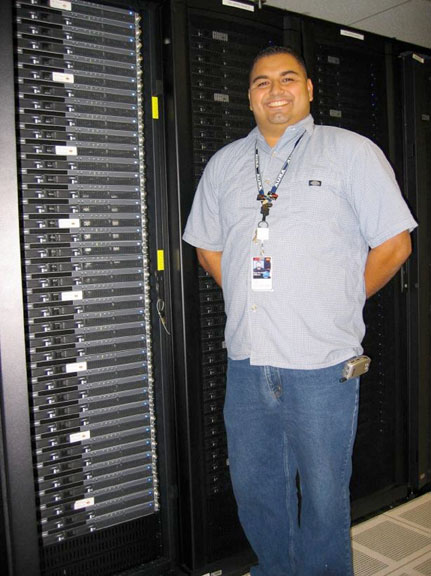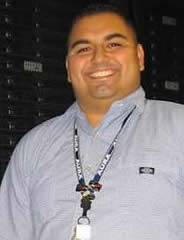David Romo
|
|
David Romo |
When you graduated: ECET Class of 2003
What you are currently doing:
Currently I'm working on Battle Control Systems (BCS) group which provides continuous air sovereignty and air defense for the North American Aerospace Defense Command with sites in the continental U.S., Alaska, Hawaii and Canada. The system supports the NORAD, U.S. Northern Command and U.S. Pacific Command missions, providing air surveillance, identification, command and control, and battle management for defense of North America. To put it simply, the system tracks all friendly, non friendly (especially flights of .interest.) in and around US Air Space for our customer (U.S. Air Force).
Specifically, my role is the BCS Point of Contact (POC) between our on site representatives and Thales Raytheon Systems (TRS). Under our current contract, we support the system of record and are responsible for any hardware system issues. (If something breaks, we get them a replacement, and typically fix what.s broken). We currently fielded a new system that is undergoing testing to be the system of record mid to late 2010 (which I also support).
How you feel your BS degree Engineering Technology helped you, and particularly how it distinguishes you from electrical engineers or technicians that you work with:
My degree in ECET prepared me well for what to expect in the workforce. Although I.ve found that school knowledge is not always the most import thing to have when it comes to communication and decision making abilities. Being a part of SCETA helped me tremendously in organizational skills and multi tasking between projects different needs. We have a wide variety of Engineers not only on the project, but internally in my group. School knowledge has played little importance in our project, quick decision making abilities and smart choices are what are most important to us. These are not typically things you.d learn in an Engineering course, (whether it.s ET, EE, Mechanical, etc.). Essentially, ECET gave me the background to know how things work and have confidence going into interviews that may require technical questions, ultimately it.s my experience in the engineering field that has made me succeed just as much as anyone else with a more .popular. degree. I don.t feel I.m any different from people who have earned an EE degree, considering I have an electrical engineering graduate with a Systems Engineer title working under me. Technicians on the other hand, do not have a degree in our field of work and do not have engineering titles nor do they receive the compensation of an engineer.
This picture below is at my first job with Raytheon while working as a contractor for the Jet Propulsion Laboratory (JPL). Picture taken 09/04 in front of high speed data computer cluster processing data for JPL.s Tropospheric Emission Spectrometer (TES).

